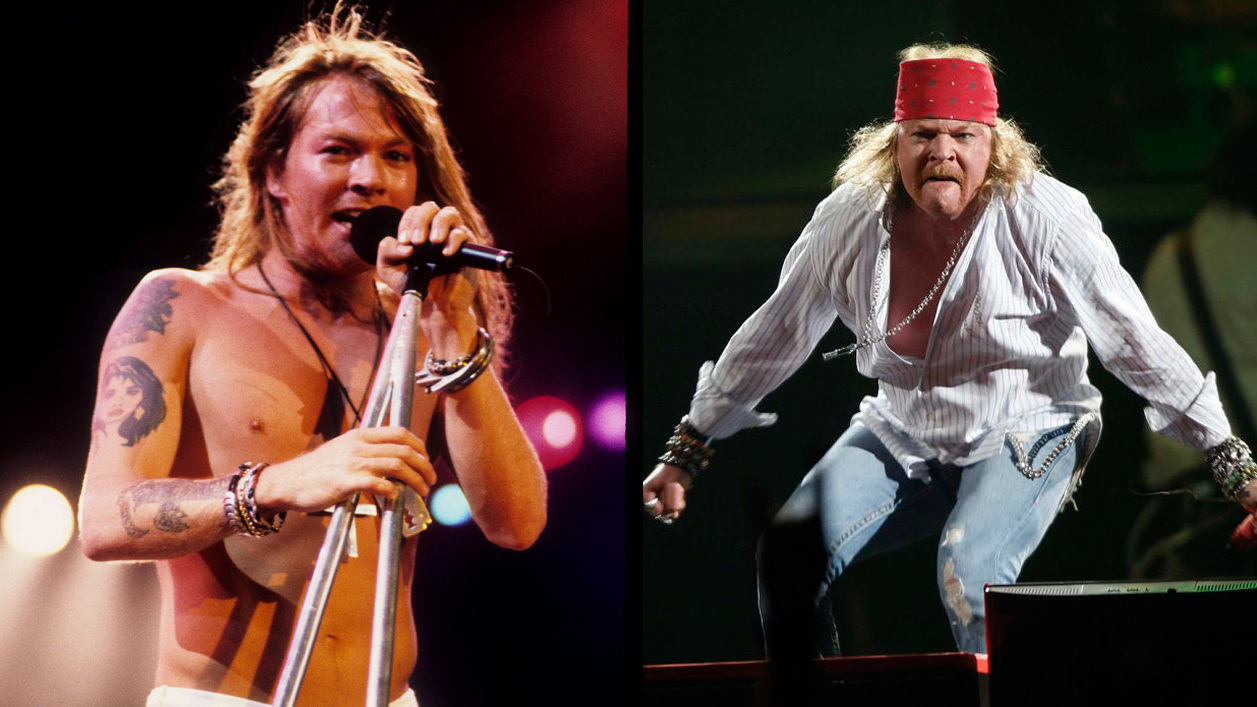Type “Fat” into Google, and the Axl Rose news stories stack up. That’s Axl’s reward for trying to legally remove the internet memes taking the piss out of 2010 photos of him looking less than svelte. It’s like a giant game of rock’n’roll whack-a-mole. Remove one picture, another ten pop up.
It’s called the Streisand Effect, named after the diva’s lawyers attempt to shut down a photo of her Malibu home taken as part of a coastal erosion survey. It was a photo only two other people had bothered to see, but the number rapidly rose to 420,000 once word of the botched suppression leaked. Closer to Classic Rock home, the Internet Watch Foundation put the infamous album sleeve to the Scorpions’ Virgin Killer on their child porn blacklist. “On this occasion,” they glumly conceded as huge numbers clicked the highlighted item, “our efforts have had the opposite effect”. Beyoncé’s Cease and Desist to Buzzfeed for using unapproved photos of her performance at 2013’s Superbowl only inspired the website to announce: “The “Unflattering” Photos Beyoncé Doesn’t Want You To See.”
Axl has form in his efforts to stop photographers, of course. Breaking off mid-song during a 1991 gig in Missouri to sprint into the crowd to assault someone he spied snapping him – and walloping anyone else who got in his way – led to a riot, and potential jail-time. Extensive footage of this heavy-handed attempt to stop one unwanted photo is of course now just a click away. And that’s Axl’s real problem in 2016. Rail against the reality of the internet, and it’s tough to win. Metallica’s Lars-led battle with Napster was the first, typically doomed rearguard action. Wave your hands like King Canute all you like – the tide’s still going to leave you dripping wet.
The frustration of many rock stars as technology strips away the glamour and mystery that aids their potency is understandable. Bob Dylan not only bans professional photographers’ from his gigs, but often performs in shadow, and is only seen on long-shot on festival screens. When your indelible images are as a sharp-dressed young man with hair, eyes and attitude wired with era-defining electricity and who knows what else, why let some amateur with a smartphone dumbly zoom in instead on your 75-year-old wrinkles and yellowing teeth? Stars want you to think of them at the point where they become famous, not once the hairlines have receded and the pounds piled on. It’s why Robert Smith still has that hair, and why Angus Young perseveres in wearing the school uniform. They’re not dumb. They know it works.
There’s another aspect to most big rock stars’ efforts to control their images now, which Axl’s legal team’s manoeuvres also highlight. They claim ownership of any photos taken at the Winnipeg gig in question, to prevent others who might “commercially exploit the resultant images of someone else’s show”. Music photographers are having their ability to make a living threatened by their rock star subjects demanding ownership and control of their work. Three songs, no flash, please sign this form. It’s led to another example of unintended consequences in the internet age. Squeeze the professionals as you vainly attempt to police all that’s seen, said or thought about you, and the field’s left free for good, bad and ugly pics taken from the crowd and share them with everyone. The more you try and seize control in the era of social media, the more it slips through your fingers.
- Axl Rose takes legal action over unflattering image
- Stop being mean to Axl! Here's six really nice memes to redress the balance
- Led Zeppelin: why lawyers must not dictate the future of rock‘n’roll
There are losses to this, on both sides of the crash-barriers. Jack White is a man whose vinyl crusade has actually reversed some of the digital tide. But at last year’s Lollapalooza, he despairingly asked the crowd to “put your cell-phones down for five seconds” because “music is sacred”. Viewing his gig through their phones, and so leaving themselves without two hands free left to clap, meant the fans could shakily immortalise the gig on the internet, but it sucked any atmosphere from the show itself, and left White wondering what he was doing onstage.
So it’s anarchy out there. Axl, of all people, should be used to that. The internet now allows an infinite variety of obnoxious rudeness, sniggering scrawls on photos, and general dumb-ass disrespect.
Fans get inspired and engaged digitally, too, as they have been by Axl’s wholly unlikely return to live form with AC/DC. The “Fat Axl” photos aren’t their fault, pointing more to the singer’s own problems at the time. When he gets a grip on his work again, dopey internet memes won’t seem so important. Fat or not, Axl’s appetite to make music is what counts.

